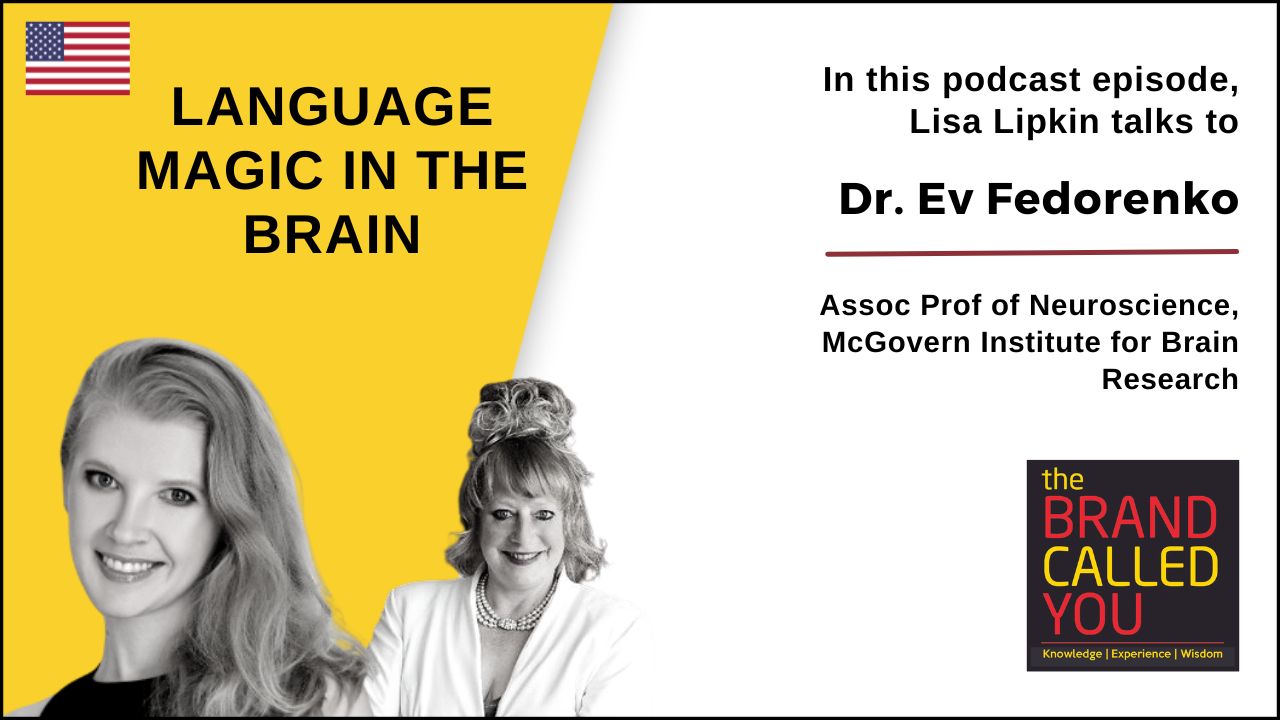Dr Ev Fedorenko, Assoc Prof of Neuroscience, McGovern Institute for Brain Research
- Ev Fedorenko is a cognitive neuroscientist specialising in the study of language.
- Throughout her entire adult life, she has dedicated herself to understanding how the human brain supports the use of language.
Podcast
Overview
Step into the captivating world of Dr. Ev Fedorenko, the maestro of neuroscience at the McGovern Institute for Brain Research. In this cerebral adventure, we explore language models, challenge the link between language and thought, and unravel the evolutionary tale that shaped the intricate language landscape of the human brain. Join us as we navigate the polyglot’s maze, where emotions and stress leave their mark on the dance of linguistic cognition. Welcome to a brief, yet riveting, exploration of the science behind language, guided by the brilliance of Dr. Fedorenko.
[00:49] – About Dr Ev Fedorenko
- Ev Fedorenko is a cognitive neuroscientist specialising in the study of language.
- Throughout her entire adult life, she has dedicated herself to understanding how the human brain supports the use of language.
- Currently serving as an associate professor in the Neuroscience and Brain and Cognitive Science department at MIT, she is also affiliated with the McGovern Institute for Brain Research.
- Her contributions extend to having a lab named after her, the EV lab, which is focused on unravelling the mysteries of how the brain creates language.
[02:19] – What is a language model?
- These models are excellent statistical learners, adept at handling various inputs like visual stimuli and language.
- Visual models extract intricate details from pixelated images, distinguishing objects like dogs or muffins.
- Language models are trained on massive amounts of language, billions, or trillions of words, predicting the next word in a context.
- Training on extensive corpora enables these models to efficiently acquire versatile representations.
- Models like ChatGPT become knowledge repositories, exposed to vast information through their language training.
[16:29] – Are there ways to activate specific language regions of the brain through the use of emotion, and can external factors like emotion enhance or stimulate these regions?
- Emotional centres like the amygdala coexist with long-term memory regions, such as hippocampal circuits.
- Language-emotion links are explored through bilinguals and multilingual, revealing a unique emotional status for one’s native language.
- Swear words and psychotherapy may have a stronger impact on the native language.
- Personal experiences, like discussing trauma, evoke different emotional responses based on the language used.
- Physiological measures, like skin conductance response, indicate a deep connection between language and core emotional centres.
- This connection is rooted in early experiences during the learning process about the world.
- The specific implementation of this link remains not entirely understood.
Enjoyed this podcast?
If you learned new insights about human language models, subscribe and share them with friends!
Love to give us 5 stars? ⭐⭐⭐⭐⭐ If you do, we’d love a review from you. Help us reach more people to keep them in the know as we talk to leaders, high achievers, and thought leaders from diverse backgrounds and nationalities. Excellence can come from anywhere; stay in the know, and hear from emergent high achievers and gurus.
Stay updated with what’s shaping the world today through the latest The Brand Called You Podcast episode. Follow us on iTunes, Spotify, and Anchor.fm.
You can find us at:
Website: www.tbcy.in
Instagram: http://bit.ly/3HO7N06
Facebook:http://bit.ly/3YzJOaD
Twitter: http://bit.ly/3wMBOXK
LinkedIn: https://www.linkedin.com/company/tbcy/
YouTube: http://bit.ly/3jmBqfq
Chingari: https://chingari.io/tbcypodcast
Josh: http://bit.ly/3WWP0nB
Thanks for listening!
Profile
- Ev Fedorenko is a cognitive neuroscientist specializing in the study of language.
- Throughout her entire adult life, she has dedicated herself to understanding how the human brain supports the use of language.
- Currently serving as an associate professor in the Neuroscience and Brain and Cognitive Science department at MIT, she is also affiliated with the McGovern Institute for Brain Research.
- Her contributions extend to having a lab named after her, the EV lab, which is focused on unravelling the mysteries of how the brain creates language.


